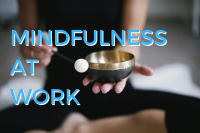
“My career is not going anywhere; I don’t know even know if I’m in the right job.” I hear this from the younger lot all the time, and when probed at a deeper level, answers usually relate to workplace culture, the relationship with their boss and colleagues, lack of clear and transparent communication, and how much their creativity is valued. Turns out, the obvious case of unfulfilled expectations and misaligned objectives arises from a place of unbelievably low emotional intelligence on both parts — millennials as well as Gen X, who, more often than not, aren’t equipped to handle this unique non-conformist breed.
It’s great that millennials are driven and, like their studious perfectionist selves who got straight A’s back in school, want to ace the real world as well. But that’s not how the grind works. Unfortunately, our society has very different yardsticks for performance at school vs. real work life. The moment it hits you that your EQ is more important than your IQ after spending 20-odd-years of life honing your technical expertise, it comes as quite a shock.
There is irrefutable research showing that emotional intelligence is a key differentiator between star performers and the rest of the pack. In fact, some data has shown that success is 80-90% attributable to EQ and only 10-20% to cognitive intelligence (IQ) – whether in your personal life or at work. It’s the trait that lets high school dropouts become multi-millionaires, ex-convicts become community leaders, and ordinary homeowners become influencers.
[Related: Leadership Development Is a Matter of Maturity Over Skills]
So, where do you start when you feel not being heard, understood, valued or taken seriously for that matter? Here are 3 thought starters that can come extremely handy to enhance emotional intelligence and excel in your career or business.
1. Self-Awareness
First things first: know yourself. Beyond the surface level of your actions and behavior, discover the deep meaning and feelings associated with those behaviors. We all view things with our own perceptive lens — my map of the world could be drastically different to your map based on my strengths, values, beliefs, experiences, culture and communication. When you are working in a diverse, multiethnic organization where people come from all sorts of cultures and backgrounds, the way each person views the world, filters information, processes it and then makes meaning out of it could differ significantly. This is the starting point of building strong EQ.
Knowing what it is that you’re good at is critical because Gallup research suggests that our strengths have both contributions and needs. For instance, you might have “positivity” as your key strength which always helps you bounce back from setbacks, but it also has a reciprocal need of optimism, uplifting energy and light heartedness. And when these needs are not met by others, you typically trip into toxic behavior of blaming, contempt, withdrawing or stone walling. If you have the strength of “focus,” you also need others to be focused and unconsciously expect everyone to be goal driven, having the clarity of outcomes and priority. If the team working with you doesn’t have this strength, they might approach the task in their own way, causing you frustration along the way. Awareness is key because it enables to widen your perceptive lens and allows for multiple viewpoints. It builds empathy and rapport.
[Related: Why We Don’t Admit We’re Wrong]
2. Self-Regulation
The underlying question here is: Can you manage your emotions and behavior to a positive outcome? Our brain is hard-wired to respond emotionally to events before it is able to process things logically. When you develop self-awareness, you can stop wasting your time attempting to push your emotions aside and allowing them to control you. Instead, you are able to understand emotions and the feelings associated with them, subsequently managing them to your benefit and the benefit of the people around you.
In my case, until a few months ago, I was not aware that communication is my topmost strength, enabling me to tell stories, verbalize my thoughts articulately and think out loud. What I had no clue about is that I also have a similar need of verbal processing, talking things out, wanting clear and articulate communication from the other end. When this need is unmet, I often feel frustrated. Simply having this awareness allows an automatic alarm bell to ring the minute I feel emotionally vulnerable. It offers me choice on how to manage the situation and react to it because I know why I’m behaving the way I am. It enables me to step back and take a look at the need of the situation, my own needs, and the needs of other parties involved. Over time and with practice, my brain will learn how to manage such situations by accepting my emotions, managing them, and finding ways to fulfill the needs of my strengths. EQ is a highly learnable trait in that sense.
3. Interdependence
When your mind, heart, tongue and body language are not ruled by your impulsive emotions that can overtake you anytime something does not go your way, you spend more time cultivating and nurturing strategically important relationships – personal or professional. You don’t have a standard auto response to a certain behavior or action irrespective of where it is coming from; it is driven by the need of the situation and how important the other person is for you. Why is it that emotionally attuned leaders bring out more in their employees than commanding and pace-setting leaders? Why is it that they are not just confident but also vulnerable, showing up with raw authenticity? They know who they are and who they are not, and that both are okay. They strive for interdependence — they know that the whole is greater than the sum of its parts. They possess skills in both domains of emotional intelligence: personal and social – self-awareness, self-regulation and interdependence. They are aware of not only their own feelings, but also of others in their sphere of influence and consciously work towards strengthening relationship with key stakeholders.
Being dependent on others for your needs or operating independently in the illusion of productivity doesn’t get you very far. Instead, when you operate from “interdependence” and take into account others’ objectives, needs, and what they bring to the table, you succeed collectively. The outcome is rich and meaningful because both parties have a stake and their input is taken into account.
When we enhance our emotional intelligence, we find ourselves with more empathy, flexibility, agility and resilience – all great qualities that build a robust self and stronger relationships, in turn enabling you to excel and succeed in your career.
—
Samia helps millennials to know who they are, and achieve what they are capable of. She’s the founder of millennial experiences at Direction Dose – Career & startup coaching, events, workshops, writing and speaking. She’s an ICF certified, Strengths Strategy career coach, NLP Practitioner, based in Dubai. Having over 9 years of experience at Procter & Gamble in brand management and coaching; Samia knows what it takes for Gen Y to succeed in their careers and startups.
Want to take the first step towards building that EQ muscle and experience how it can enable growth in your career? Get in touch with me at samia@directiondose.com for a complimentary session or visit www.directiondose.com to find out how I can help you.
This article previously appeared on www.ellevatenetwork.com









Leave A Comment